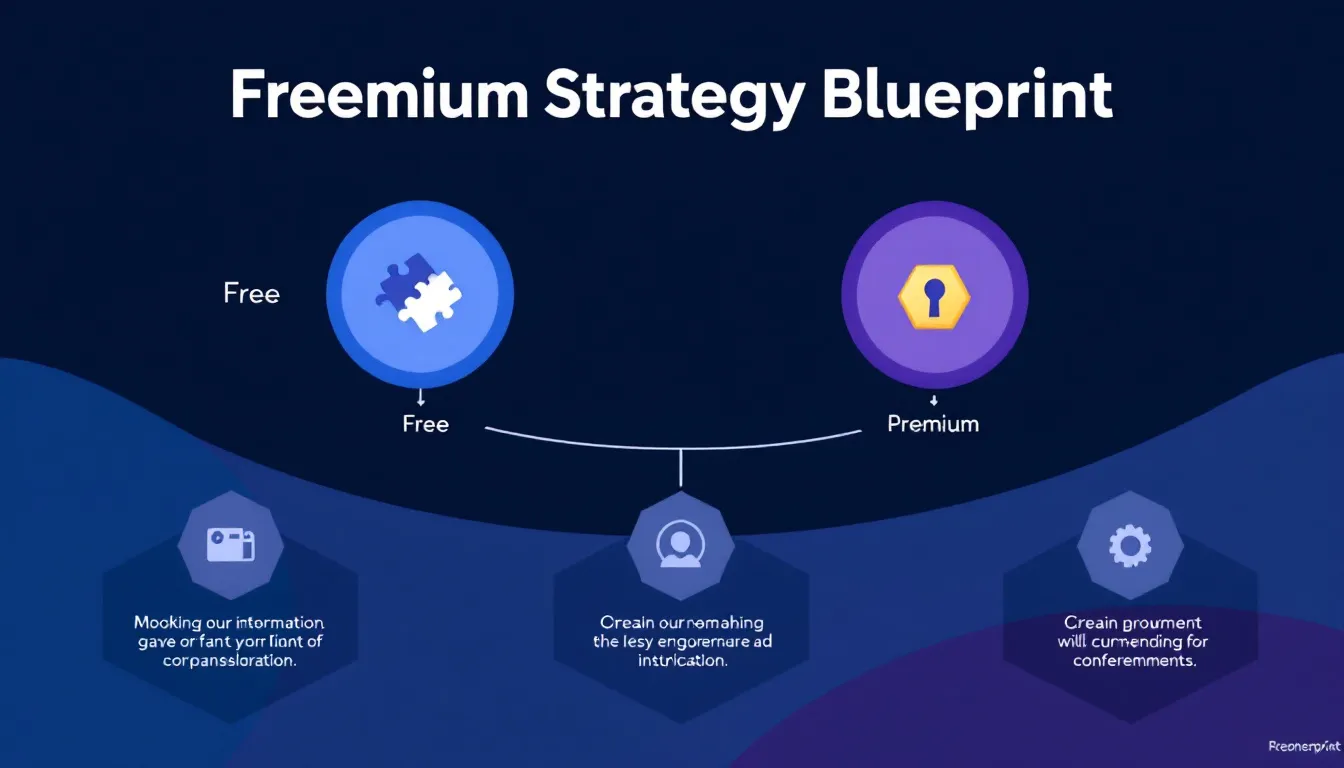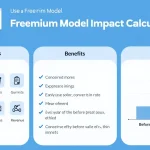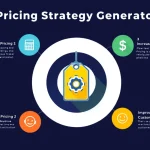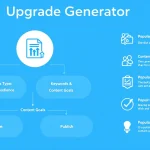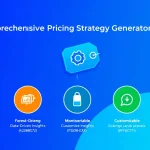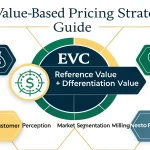Freemium Pricing Strategy Generator
Generating strategy...
Is this tool helpful?
How to Use the Freemium Strategy Generator Tool Effectively
To utilize this powerful freemium strategy generator tool, follow these step-by-step instructions for optimal results:
1. Product or Service Details
Enter your product type in the first field. Be specific about your offering. For example:
- Example 1: “Professional photography editing software with cloud storage capabilities”
- Example 2: “Language learning platform with AI-powered speech recognition”
2. Target Audience Specification
Define your target customer segment clearly. Consider these examples:
- Example 1: “Professional photographers and serious hobbyists aged 25-45 who need advanced editing tools”
- Example 2: “International business professionals seeking language proficiency for career advancement”
3. Pricing Tier Structure
Detail your desired pricing tiers and corresponding features. Include:
- Free tier features
- Premium tier offerings
- Enterprise-level capabilities
4. Conversion Goals (Optional)
Specify your target conversion metrics if you have them. Examples include:
- Monthly conversion rate targets
- User retention goals
- Revenue objectives per user
5. Competitor Analysis (Optional)
Input information about competitor pricing strategies to help contextualize your model.
Understanding the Freemium Strategy Generator
The Freemium Strategy Generator is an advanced tool designed to help businesses develop effective freemium pricing models that balance customer acquisition with revenue generation. This tool analyzes your input data to create customized strategies that align with your business objectives.
Core Components of Freemium Strategy
The tool considers several key elements:
- Value proposition alignment
- Feature segmentation
- Conversion optimization
- Market positioning
- Customer lifecycle management
Benefits of Using the Freemium Strategy Generator
1. Data-Driven Decision Making
The tool provides evidence-based recommendations by analyzing:
- Market trends
- Customer behavior patterns
- Competitive positioning
- Revenue optimization opportunities
2. Time and Resource Optimization
Businesses save valuable resources through:
- Automated strategy development
- Rapid iteration capabilities
- Reduced planning time
- Streamlined implementation processes
3. Risk Mitigation
The tool helps minimize risks by:
- Identifying potential pricing pitfalls
- Suggesting optimal feature distribution
- Providing competitive insights
- Recommending tested conversion strategies
Solving Business Challenges with the Freemium Generator
Customer Acquisition Optimization
The tool addresses key challenges in customer acquisition by:
- Determining optimal free-tier features
- Identifying conversion triggers
- Suggesting engagement mechanisms
Revenue Maximization Strategies
The generator helps maximize revenue through:
- Strategic feature placement
- Pricing tier optimization
- Upgrade path development
Practical Applications and Examples
Case Study 1: SaaS Platform
A project management software implemented the following strategy:
- Free Tier: Basic task management, 3 team members, 5 projects
- Pro Tier ($29/month): Advanced reporting, 15 team members, unlimited projects
- Enterprise Tier ($99/month): Custom workflows, API access, dedicated support
Case Study 2: Mobile Application
A fitness tracking app structured their offering as:
- Free Tier: Basic workout tracking, step counter, calorie calculator
- Premium ($9.99/month): Personalized training plans, nutrition guidance, video tutorials
- Elite ($19.99/month): 1-on-1 coaching, custom meal plans, priority support
Frequently Asked Questions
What is the ideal number of pricing tiers?
While this varies by industry and product type, most successful freemium models typically include 2-4 tiers: Free, Premium, and sometimes Enterprise or Professional.
How should I determine which features to offer in the free tier?
The free tier should provide enough value to demonstrate your product’s core benefits while reserving premium features that drive conversions to paid tiers.
What are typical conversion rates for freemium models?
Conversion rates vary significantly by industry, but successful freemium businesses often see 2-5% of free users converting to paid tiers.
How often should I update my freemium strategy?
Regular quarterly reviews are recommended, with major updates typically occurring annually based on market conditions and user feedback.
Can freemium work for any type of business?
While freemium can be effective for many digital products and services, it’s particularly well-suited for businesses with low marginal costs and high potential for user engagement.
What metrics should I track for my freemium model?
Key metrics include conversion rate, customer acquisition cost (CAC), lifetime value (LTV), churn rate, and feature usage patterns among free and paid users.
Important Disclaimer
The calculations, results, and content provided by our tools are not guaranteed to be accurate, complete, or reliable. Users are responsible for verifying and interpreting the results. Our content and tools may contain errors, biases, or inconsistencies. We reserve the right to save inputs and outputs from our tools for the purposes of error debugging, bias identification, and performance improvement. External companies providing AI models used in our tools may also save and process data in accordance with their own policies. By using our tools, you consent to this data collection and processing. We reserve the right to limit the usage of our tools based on current usability factors. By using our tools, you acknowledge that you have read, understood, and agreed to this disclaimer. You accept the inherent risks and limitations associated with the use of our tools and services.
